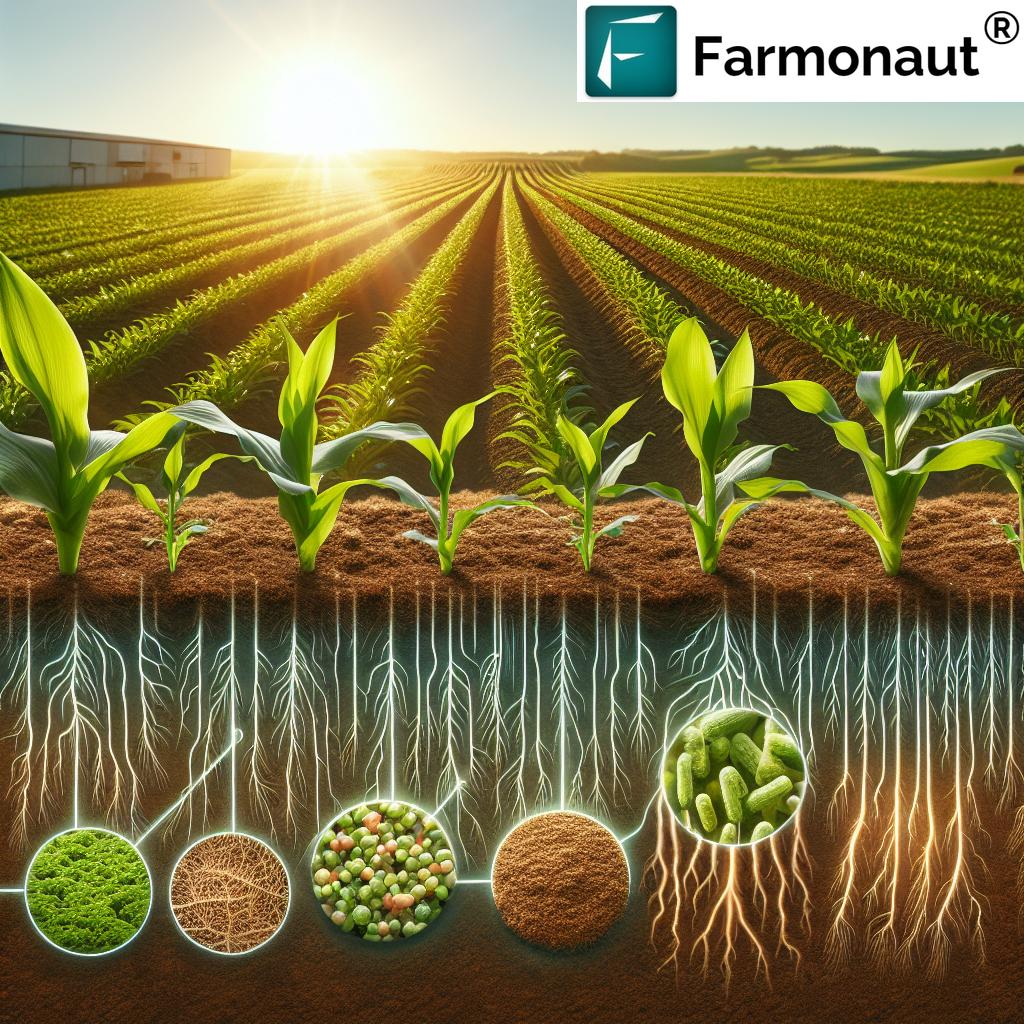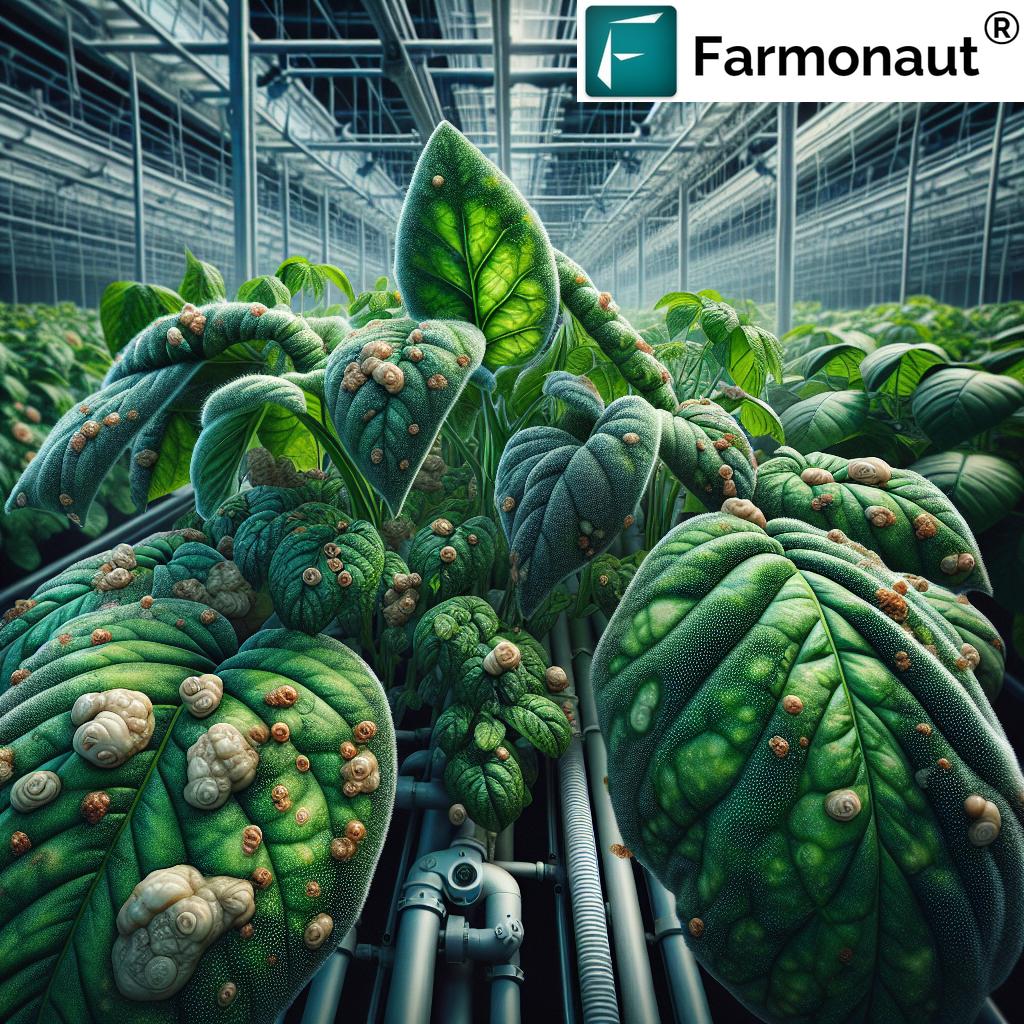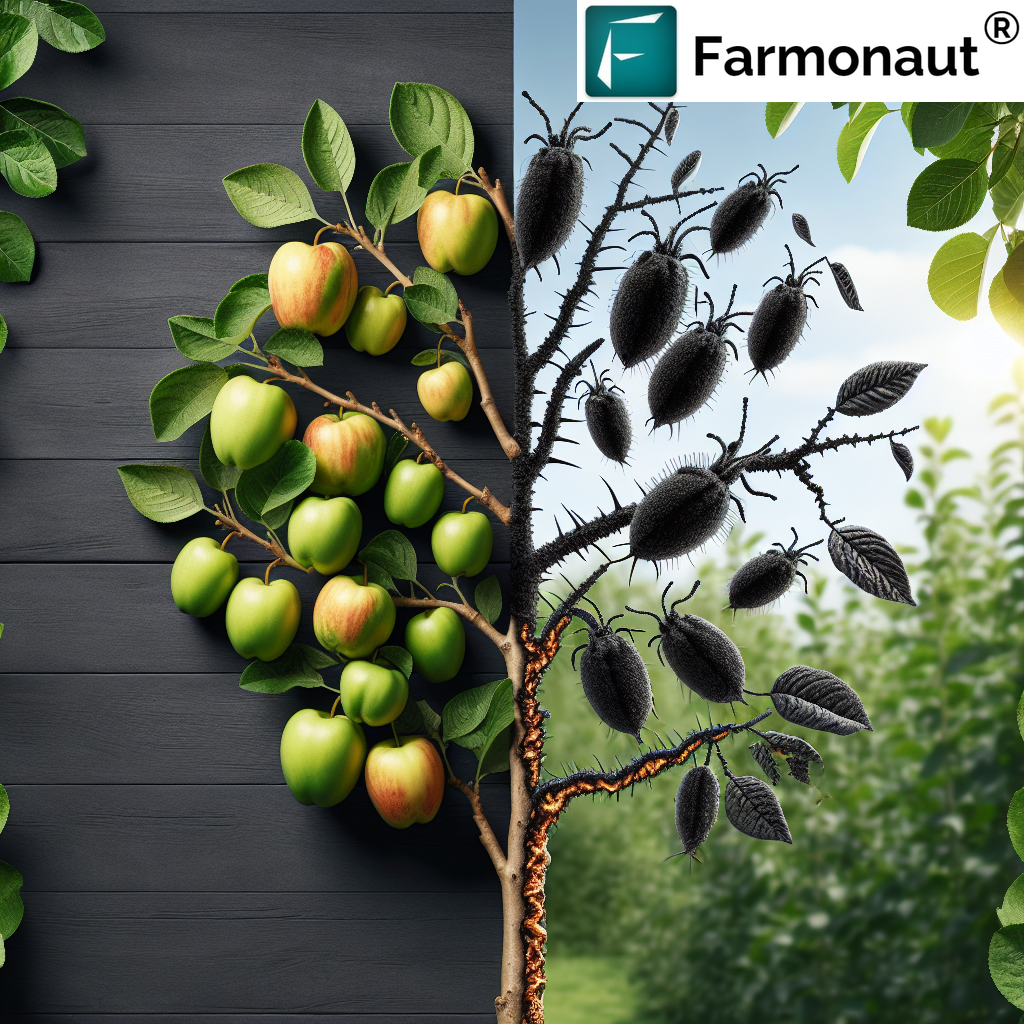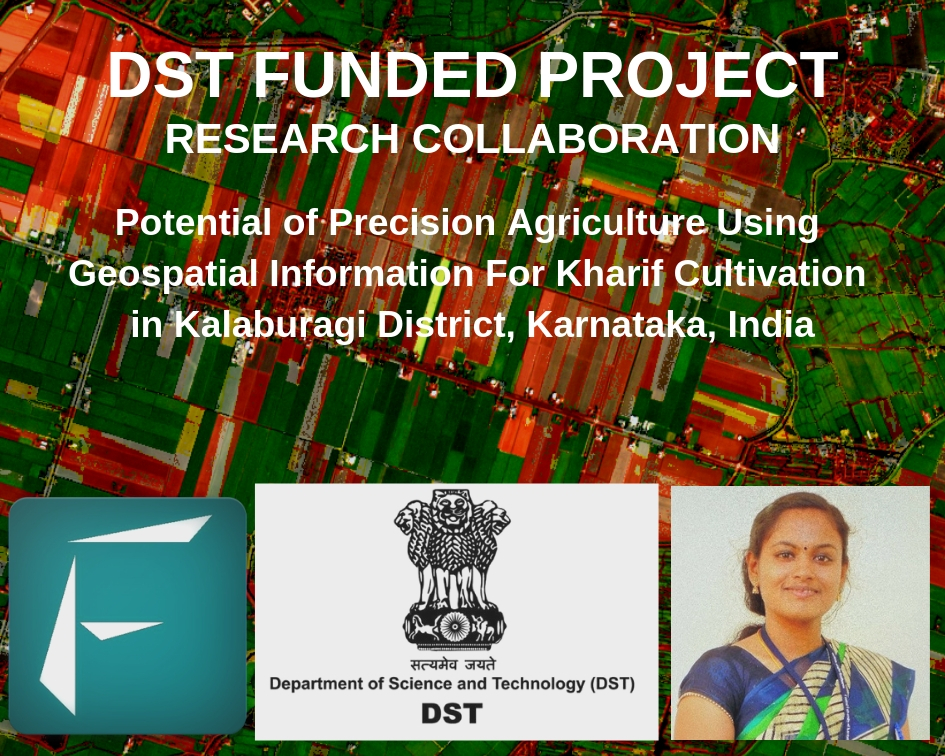Agriculture Biologicals: 7 Insane Hacks for Profit!
Table of Contents
- Introduction to Agricultural Biologicals
- Fun Fact: Biologicals Boost Yields
- What Are Agriculture Biologicals?
- Hack #1: Biopesticides for Farming – Natural Pest Control for Profitable Crops
- Hack #2: Biostimulants for Plant Growth – Supercharge Your Crop Productivity
- Hack #3: Biofertilizer Benefits – Sustainable Solutions for Soil and Yield
- Hack #4: Microbial Soil Enhancement – Empower Soil Health with Microorganisms
- Hack #5: Stress-Resilient Crops – How Biologicals Enable Environmental Adaptability
- Hack #6: Smart Adoption – Using Tech for Biological Crop Protection
- Comparison Table: Biologicals vs. Traditional Solutions
- Hack #7: Maximize Profit with Sustainable Farm Management Solutions
- Agricultural Biologicals Market Trends & Global Growth
- Leading Companies in Agriculture Biologicals
- Frequently Asked Questions
- Get Started with Farmonaut
- Conclusion: Reaping the Rewards of Sustainable Agricultural Solutions
“Biologicals can increase crop yields by up to 20%, promoting both profit and sustainability in modern agriculture.”
Introduction to Agricultural Biologicals
In an age where sustainable farming practices aren’t just a trend but a necessity for economic and environmental survival, agricultural biologicals are transforming the way we approach crop management and profit maximization. By harnessing natural products, beneficial microorganisms, and advanced technologies, we can optimize plant health, enhance soil fertility, and reduce reliance on chemical pesticides and fertilizers. The global agricultural sector is rapidly pivoting towards these solutions to address growing consumer demand for organic, eco-friendly, and residue-free products.
In this comprehensive guide, we’ll unveil 7 insane hacks that leverage agricultural biologicals to boost profitability, support sustainable agricultural solutions, and ensure long-term soil health. Along the way, we’ll explore key product categories—biopesticides, biostimulants, and biofertilizers—while providing expert insights, technology integration tips, and best practices for thriving in the modern agricultural landscape.
What Are Agriculture Biologicals?
Agricultural biologicals are a broad group of products derived from natural sources, such as microorganisms, plant extracts, and other organic materials. Designed to enhance crop health and productivity while being environmentally responsible, these solutions are emerging as powerful alternatives to conventional chemical inputs.
- Biologicals include biopesticides for natural pest control, biostimulants for plant growth enhancement, and biofertilizers for improving soil fertility.
- Used widely in organic farming products, they support sustainable agricultural solutions by lowering chemical input dependency.
- They promote plant growth, improve soil structure, and provide enhanced resistance against pests and environmental stressors.
By integrating biologicals into our farming practices, we not only improve our yields and profits but also contribute to a healthier environment, lower greenhouse gas emissions, and more resilient agricultural systems.
Hack #1: Biopesticides for Farming – Natural Pest Control for Profitable Crops
What Are Biopesticides?
Biopesticides are products derived from beneficial microorganisms (such as bacteria, fungi, and viruses) or naturally occurring compounds (like plant extracts). These are used for biological crop protection, offering us a targeted, safer, and more sustainable alternative to chemical pesticides.
- Microbial Pesticides: Contain living organisms such as Bacillus thuringiensis (a bacterium effective against insect larvae). These biologicals target specific pests, sparing beneficial insects and reducing non-target risks.
- Biochemical Pesticides: Utilize plant-derived oils (like neem oil) and pheromones that interfere with pest behavior and control crop-damaging insects naturally.
- Plant-Incorporated Protectants: Created through genetic engineering, where plants produce their own pest-protective compounds (e.g., Bt corn that synthesizes a protein toxic to specific insects).
Biopesticides for Farming – Key Benefits
- Effective natural pest control for crops with reduced environmental footprint.
- Minimize development of pest resistance, supporting long-term pest management strategies.
- Safer for human health and biodiversity compared to traditional pesticides.
- Simplifies residue management for organic crop certification.
By using biopesticides for farming, we tap into nature’s own defense mechanisms, protecting our crops and maximizing profits without compromising sustainability.
Hack #2: Biostimulants for Plant Growth – Supercharge Your Crop Productivity
How Biostimulants Work
Biostimulants are specialized agricultural biologicals that do not provide direct nutrients but instead stimulate natural processes within plants, enhancing growth, nutrient uptake, and resilience against environmental stressors.
- Microbial Biostimulants: Utilize beneficial bacteria and fungi to boost plant-microbe interactions, improve nutrient availability, and promote uniform crop development.
- Seaweed Extracts: Rich in plant hormones such as auxins and cytokinins, these marine-derived extracts enhance root growth and plant vigor.
- Humic Substances: Comprise humic and fulvic acids which improve soil structure, water holding capacity, and nutrient exchange efficiency.
Why Use Biostimulants for Plant Growth?
- Improve crop productivity by supporting plant resilience and growth at every stage.
- Mitigate negative effects of abiotic stress (like drought, extreme heat, or salinity).
- Increase root mass and nutrient use efficiency for bigger, healthier yields.
- Support sustainable agricultural practices with natural, non-toxic alternatives.
Biostimulants for plant growth open a world of possibilities for farmers committed to organic and sustainable farming while remaining competitive in yield and profit.
“Biofertilizers reduce chemical fertilizer use by 30%, enhancing soil health and supporting eco-friendly farming practices.”
Hack #3: Biofertilizer Benefits – Sustainable Solutions for Soil and Yield
What Are Biofertilizers?
Biofertilizers are natural fertilizers containing live or latent microorganisms that promote growth by increasing nutrient availability to plants. Used either on the seed, soil, or directly on the plant, biofertilizers form part of a holistic approach to microbial soil enhancement and nutrient management.
- Nitrogen-Fixing Biofertilizers: Rhizobium and other bacteria fix atmospheric nitrogen, making it available for plant growth. Essential for legumes and cereals.
- Phosphate-Solubilizing Biofertilizers: Convert insoluble phosphorus in soil to usable forms, reducing the need for chemical phosphate fertilizers.
Top Biofertilizer Benefits
- Significant cost savings on synthetic chemical inputs.
- Improved soil structure and long-term fertility through increased organic matter and microbial diversity.
- Support for sustainable agricultural solutions and certified organic farming products.
With proper application, biofertilizer benefits include increased yields, enhanced soil health, and a reduced environmental impact—delivering profit and sustainability in harmony.
Hack #4: Microbial Soil Enhancement – Empower Soil Health with Microorganisms
Why Microbial Soil Enhancement Matters
The cornerstone of healthy, high-yielding fields is a vibrant soil microbiome. By leveraging beneficial bacteria, fungi, and even algae, we can improve soil structure, increase the availability of nutrients, and boost plant resilience to stress.
- Bacillus and other genera are widely used for nitrogen-fixing, phosphorus-solubilizing, and control of soil-borne diseases affecting crops.
- Microbial inoculants enhance soil aggregation, porosity, and water-holding capacity—crucial for sustainable yields in regions facing water scarcity or degraded soils.
- Humic substances and seaweed extracts further stimulate microbial activity, magnifying the benefits of microbial soil enhancement.
Integrating microbial products helps us transition from chemical-dependent systems to regenerative, sustainable farming practices that stand the test of time.
Hack #5: Stress-Resilient Crops – How Biologicals Enable Environmental Adaptability
Drought, heatwaves, floods, and soil salinity are increasingly common challenges in modern agriculture. By deploying biologicals, we can improve plant resilience and help crops withstand these stressors:
- Biostimulants (like seaweed extracts) enhance osmolyte accumulation, boosting drought and salt tolerance in plants.
- Biofertilizers maintain consistent nutrient uptake during periods of environmental stress.
- Microbial products increase root surface area, promoting deeper water extraction and increased adaptability to varying climatic conditions.
This boost in stress tolerance preserves yields during difficult seasons, supporting both sustainability and reliable profits.
Hack #6: Smart Adoption – Using Tech for Biological Crop Protection
Leveraging Technology for Maximizing Biologicals Efficacy
Advanced technologies bridge the gap between biological innovation and practical farming. Adopting precision agri-tech platforms like Farmonaut’s, we can optimize when, where, and how agricultural biologicals are deployed:
-
Satellite-Based Crop Health Monitoring: By using multispectral satellite imagery, we can:
- Identify pest/disease hotspots early for targeted biopesticide application.
- Monitor soil moisture and crop vitality, informing biofertilizer scheduling.
- Farmonaut’s Carbon Footprinting Solution empowers us to track and reduce emissions, reinforcing sustainable agricultural innovations.
- AI-Based Advisory: Platforms like Farmonaut’s AI Advisory System analyze climate, crop growth stages, and pest/disease risk—delivering custom biological input recommendations directly to our device.
- Blockchain-Based Traceability: Ensures that organic farming products can be authentically traced from farm to consumer—building trust and protecting premium pricing. Explore Farmonaut Traceability Solutions for secure transparent product tracking.
- Resource and Fleet Management: For large farms, Fleet management tools boost application precision, save costs, and ensure timely, efficient deployment of biologicals.
Embracing digital and data-driven decision-making amplifies the advantages of biological crop protection and sustainable agricultural solutions.
Comparison Table: Agricultural Biologicals vs. Traditional Solutions
| Solution Type | Estimated Yield Increase (%) | Estimated Cost Savings (%) | Environmental Impact | Soil Health Improvement | Sustainability Score (1-5) |
|---|---|---|---|---|---|
| Biostimulant | 10–20 | 15–25 | Low | Yes | 5 |
| Biofertilizer | 8–18 | 20–30 | Low | Yes | 5 |
| Chemical Fertilizer | 10–15 | 0–5 | High | No | 2 |
| Chemical Pesticide | 12–16 | 0–5 | High | No | 1 |
Note: Estimates represent ranges observed in scientific literature and field trials. Adaptation to local conditions is essential for optimal benefits.
Hack #7: Maximize Profit with Sustainable Farm Management Solutions
It’s not just about which inputs we use—it’s also about how we manage them for long-term benefit. The adoption and integration of agricultural biologicals demands best-in-class decision support, transparent supply chains, and targeted intervention.
- Farm Management Platforms: Farmonaut’s Large Scale Farm Management tools combine satellite-based analytics and resource tracking. This lets us monitor application impact, fine-tune input usage, and maximize our biologicals ROI at every field scale.
- Crop Loan and Insurance Facilitation: Sustainable farming requires financial access. Farmonaut’s satellite-based verification enables secure, fraud-resistant crop loan and insurance processing.
- API for Custom Agri Solutions: Building your own digital agri-toolkit or integrating biologicals management? Explore Farmonaut’s API platform and developer documentation to inject geospatial insights directly into your operations.
When adopted in combination with biostimulants, biofertilizers, and biopesticides, these management strategies amplify both environmental benefits and farm profitability—solidifying our position in the competitive, future-focused global market.
Agricultural Biologicals Market Trends & Global Growth
The global agricultural biologicals market is rapidly expanding:
- Market Size: Valued at $9.9 billion (2020), projected to reach $18.9 billion by 2025 (Source).
- Key Growth Drivers: Increasing demand for organic products, stricter environmental regulations, and the need to mitigate chemical pesticides’ environmental impact.
- Major Adaptation Challenges:
- Variable efficacy due to local soil and climatic conditions.
- Regulatory hurdles and slow approval processes for new biological products.
- Farmer education and training requirements for safe and effective integration of biologicals.
It’s clear that the adoption of biologicals is not just about doing good for the environment—it’s also a sound business investment that ensures resilience and profit in the face of global changes.
Leading Companies in Agriculture Biologicals
The world’s largest agri-input companies are investing in biological innovations and launching new product ranges. Among notable leaders:
- BASF SE: Global leader with a wide portfolio in biopesticides and biostimulants for environmentally friendly, sustainable crop protection. (Source)
- Syngenta Group: Develops and distributes innovative biological products focused on enhancing yield and crop resilience. (Source)
- Bayer AG: Focuses on sustainable farming and integrated crop management using advanced biologicals. (Source)
- Corteva Agriscience: Pioneer in integrating biopesticides and biostimulants with large-scale crop management services. (Source)
Frequently Asked Questions (FAQ)
What are agricultural biologicals, and how do they differ from chemical inputs?
Agricultural biologicals are products derived from natural sources (microorganisms, plant extracts, etc.), designed to enhance plant growth, pest control, and soil health. Unlike chemical fertilizers and pesticides, biologicals are typically biodegradable, less harmful to the environment, and safer for human health.
How do biopesticides help in sustainable agriculture?
Biopesticides offer natural pest control for crops by using beneficial bacteria, fungi, or plant extracts to target harmful pests without affecting beneficial organisms or causing soil and water contamination.
What are the main benefits of using biofertilizers?
Biofertilizers boost nutrient availability (especially nitrogen and phosphorus) for crops, reduce dependency on synthetic chemical fertilizers, and enhance long-term soil fertility and structure.
Are agricultural biologicals suitable for organic farming?
Yes, most agricultural biologicals comply with organic certification standards, making them ideal for use in certified organic farming systems focused on health, sustainability, and eco-friendly crop protection.
How can we ensure maximum profit and efficacy from biologicals?
Combining biologicals with precision farming technology—like satellite monitoring and AI advisory—enables targeted, efficient use, maximizing ROI and environmental benefits. Education and adaptation to local field conditions are crucial.
Are there any risks or limitations in adopting biological crop protection?
The main challenges include variability in biological effectiveness under different environmental conditions, regulatory approval timelines, and the need for farmer training. However, these are outweighed by the long-term gains in sustainability and soil health.
Get Started with Farmonaut – Affordable Access to Smart Agricultural Tools
Ready to unlock higher yields, sustainability, and profit? Access Farmonaut’s precision agriculture platform from anywhere with flexible subscriptions—for both smallholders and large enterprises. Enjoy real-time crop and soil health data, AI-based advice, traceability, and more.
Conclusion: Reaping the Rewards of Sustainable Agricultural Solutions
The era of agricultural biologicals is here, delivering powerful, sustainable, and profitable solutions for forward-thinking farmers and agribusinesses. With tools like biopesticides for natural pest control, biostimulants for enhanced plant growth, and biofertilizers for soil fertility, we can reduce chemical dependency, improve our environment, and drive reliable profit.
By integrating advanced management technologies—like those available through Farmonaut’s affordable and accessible platform—we unlock even greater yield, efficiency, transparency, and sustainability.
Now is the time to adopt agricultural biologicals in harmony with cutting-edge digital farming tools and ensure our place in the future of sustainable, profitable agriculture.






















